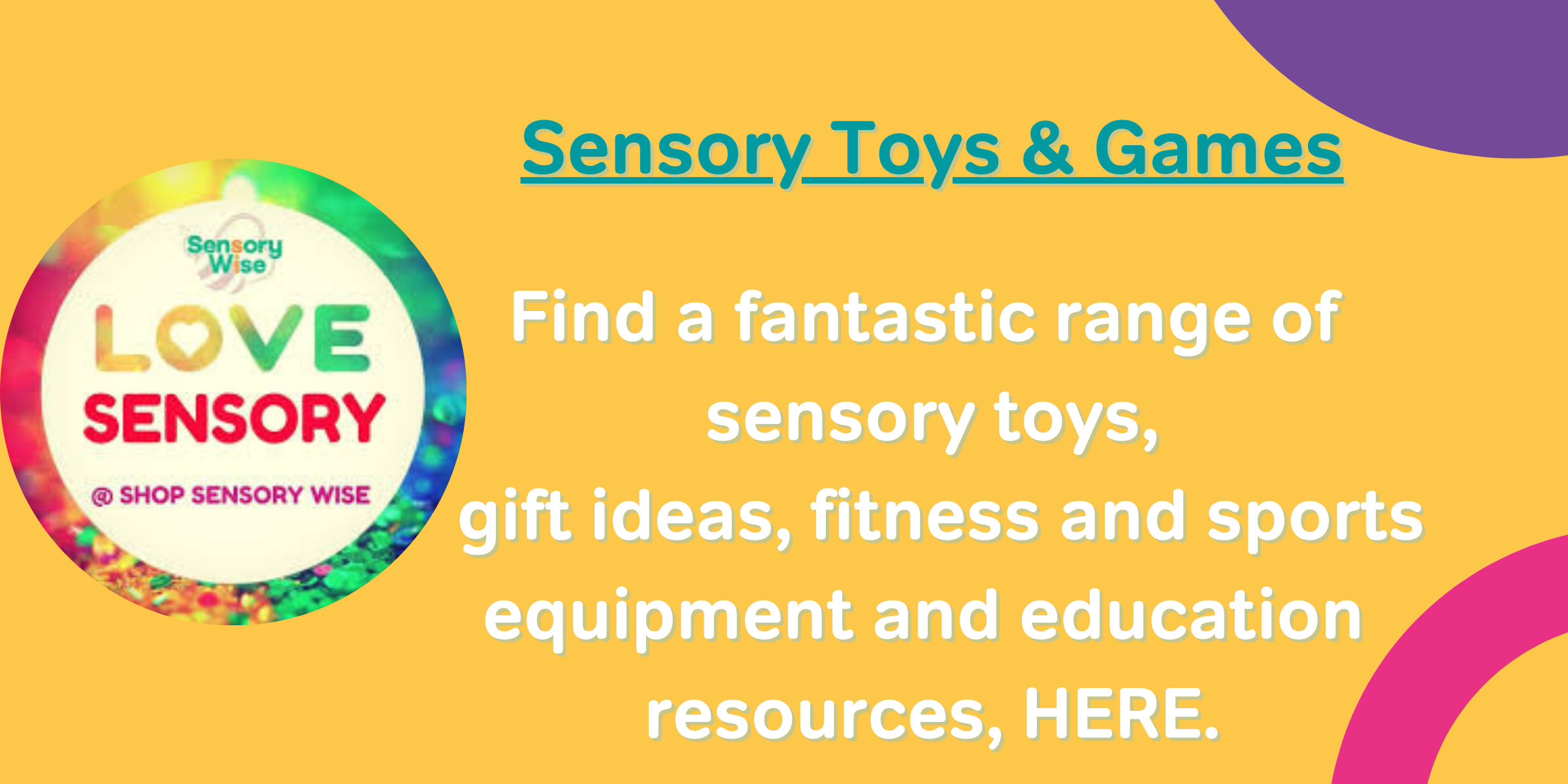15 Fun Activities for Children with Special Needs
If you have a child with special needs, it can be tough to find activities that they will enjoy and be suitable for them. But don't worry, we've got you covered!
Looking for SEN Jobs? Click here to search our current roles
This blog post will discuss 15 fun activities that your child is sure to find engaging. These activities are great for children with special needs because they help promote physical activity, social interaction, and creativity. So read on to learn more!
There are many fun activities that children with special needs can enjoy. Here are a few ideas:
SEN Activity #1 – Going to the park
Parks provide plenty of opportunities for stimulation, including swings, slides, and climbing structures. Going to the park can be fun for everyone. Playing with chalk on the pavement, climbing through playground structures and running around are great ways to let off some steam. Even though children with special needs may not do all of these activities without help from a parent or caregiver, they can still enjoy themselves at the park.
SEN Activity #2 – Visiting a zoo or aquarium
Both zoos and aquariums offer a variety of animals and aquatic life to view. Many zoos and aquariums have areas where children with special needs can explore without worrying about large crowds or loud noises. This can be overwhelming for children with a sensory processing disorder. Keep in mind that visiting these places can be fun and educational, they can also be very busy and chaotic. Try to choose a quieter time such as weekday mornings when most people are at work or school, if you want to avoid crowds. Once there, allow your child plenty of opportunities to explore at their own pace.
SEN Activity #3 – Playing in a playground
Playgrounds offer a variety of equipment that can be stimulating, such as monkey bars, roundabouts and zip wires.
This could be fun, but not all playgrounds are designed to allow children with disabilities to play safely. This is especially true for children who have mobility issues or use wheelchairs. To help these kids enjoy an active lifestyle and exercise in a safe environment, some local councils have adapted the facilities to make playgrounds accessible to everyone, offering educational programs to help families of children with special needs.
SEN Activity #4 – Going for a walk or ride
A leisurely walk or bike ride around the local community can provide plenty of stimulation and fresh air. Going for a walk or ride on a bike trail is usually fun for most kids. It's an opportunity to get some fresh air and enjoy nature simultaneously. For children with disabilities, it can be even more beneficial.
If you don't have a bike trail near you, take a walk around the neighbourhood or in a park. If your child is a wheelchair user, seek advice on the suitability of the terrain before you set off.
SEN Activity #5 – Playing games
Board games, card games, and other types of games can be a lot of fun for children of all abilities.
Board games, in particular, can be helpful for children with special needs because they give the child a structured activity to do and help them work on their social skills.
Another tip is to use board games that reinforce specific lessons, such as maths or reading. For example, Snakes and Ladders help kids learn to count and take turns, while Monopoly teaches money management skills.
SEN Activity #6 – Building with toys
Building blocks are another fun activity for children who have special needs. They allow the child an opportunity to build something safely on their own, giving a real sense of achievement and pride when they finish the activity successfully! Also, playing with building blocks is excellent for developing hand-eye coordination.
SEN Activity #7 – Doing puzzles
Puzzles are a fun way for kids to use their brains and practise problem-solving skills. There are many different types of puzzles, such as jigsaw puzzles, logic puzzles, and word search puzzles.
SEN Activity #8 – Colouring
Colouring is another activity that's perfect for kids of all abilities. It helps develop hand-eye coordination and fine motor skills, and it's also a great way to let kids express their creativity. You can buy unique colouring books designed for children with special needs, or you can just use regular colouring books and crayons.
SEN Activity #9 – Crafting
Crafting is another fun activity that lets kids be creative. There are many different crafting activities that you can do with your child, such as making jewellery, sewing a pillow, or painting a picture.
SEN Activity #10 – Visiting a friend or family member
Visiting with friends and family members is always an excellent way for kids to socialise. This can be especially helpful if your child has trouble making friends at school or in their community due to shyness, anxiety, etc.
SEN Activity #11 – Going on a trip
A family trip or holiday is another fun activity that helps children with special needs get away from home and explore new places. There are many different types of holidays that you can take, such as to a beach, a camping trip, or a visit to a theme park. A new place is always an exciting adventure. It can be gratifying for children with special needs to explore different surroundings and discover new things.
SEN Activity #12 – Eating out
Eating at restaurants is another fun activity that the whole family can enjoy. It's perfect for kids who have trouble sitting still for long periods because they get to explore a new environment.
When eating out, children with special needs can sometimes feel overwhelmed by the noise and hustle of activity in the restaurant. Parents can help their children feel more comfortable by choosing a quiet restaurant and visiting during off-peak hours. When ordering, keep your child's likes and dislikes in mind, and ask the staff for help if needed. Try to order foods that can be quickly eaten with utensils or dipped into sauces, as children with special needs may have difficulty chewing or swallowing certain textures.
Some restaurants offer children's menus with smaller portions and simplified options. If your child is comfortable eating off of a regular menu, order them something they will enjoy and be sure to ask for help if needed. Many restaurants are happy to accommodate special dietary needs, so don't be afraid to speak up. And finally, remember to relax and enjoy your meal! Eating out can be a fun and memorable experience for children with special needs when the proper precautions are taken and preparations have been factored in.
SEN Activity #13 – Baking
It is a great activity. There are many ways to make it fun and therapeutic for your child with learning disabilities or other special needs.
First, let's talk about the benefits of baking for children with special needs:
Improves fine motor skills: As your child uses their hands to mix ingredients, scoop batter into pans, or decorate cookies, they are working their fine motor skills.
Gets your child to explore textures: Baking lets children experiment with different food textures in a safe environment. They can see and feel the difference between wet and dry ingredients and how they interact with each other.
Builds maths skills: They will understand how to measure (a cup or a tablespoon). They will also have to learn how much of each ingredient they need, which is an excellent way to practice their maths skills.
Teaches responsibility: Baking teaches children about food safety and cleanliness.
For example, they can learn about washing their hands and utensils before baking. They will also learn to follow a recipe and be patient while their food is baking.
Now that we know some of the benefits, let's get into how you can make baking fun for your child:
Get them involved in the grocery shopping process: Let them choose which ingredients to buy or have them help you measure them out.
Let them help you cook: Even if they are just stirring or adding ingredients in your direction, let them help in the kitchen. It will give them a sense of accomplishment and make baking more fun.
Make it a social activity: Bake with friends or family members. Not only will it be more fun for your child, but they will also learn social skills.
Bake themed items: Have your child help you make cookies or cupcakes in the shape of their favourite animal, character, or object. This can add an extra level of fun to baking.
Let them experiment: Let your child be creative and experiment with different ingredients and flavours. They might come up with a new recipe that they can add to your family's repertoire!
Use fun tools: Get a kid-sized baking set or use measuring cups and spoons in the shape of animals. Anything that makes the activity more fun for your child will help keep them engaged while baking.
Make it a contest: See who can make the best-looking or best-tasting cookies or cupcakes. This will add some competition and excitement to the baking process.
Now that you know how to make baking fun for your child, get in the kitchen and start cooking! Your child is sure to have a good time while they improve their skills.
SEN Activity #14 – Go swimming
Swimming is a fun activity which helps with coordination and motor skills, and is often used as a form of physiotherapy for children with mobility restrictions.
If you live close enough to the sea, take your kids there for a day of fun in a natural environment but always be aware of the dangers when swimming in open water.
SEN Activity #15 – Make music together
Children with special needs can enjoy making music just like any other child. It may help them learn about numerical sequences, patterns, and rhythm. If your child is non-verbal or has limited speech, encourage them to use a visual chart to express their musical preferences. An excellent way for children with special needs to get active is through dance. Dance can be a great form of communication for children with limited speech and a perfect way to get involved and have fun!
Benefits of all SEN activities
There are many benefits to be had when children with SEN engage in various activities. These include, but are not limited to:
- Improved physical health and well-being as a result of increased exercise levels and stimulation
- Enhanced social skills as a result of interacting with other children/adults
- Greater self-confidence and self-esteem as a result of mastering new skills and achieving success
- Improved ability to focus and concentrate
- Reduced stress levels and improved moods as a result of engaging in enjoyable activities
In conclusion
So, if you're looking for some fun activities to keep your child busy and entertained, check out the list we put together. And remember, even if your child doesn't have any special needs, these activities can still be a lot of fun! Do you have any favourite go-to activities that we didn't mention? Share them with us in the comments below.
Looking for SEN Jobs? Click here to search our current roles
Updated: Feb 2024
2 comments load →

